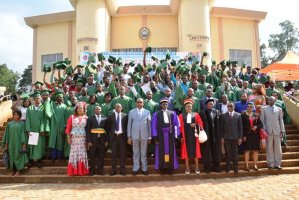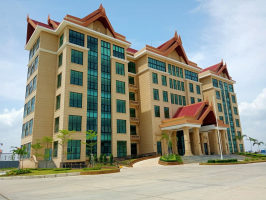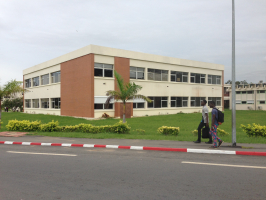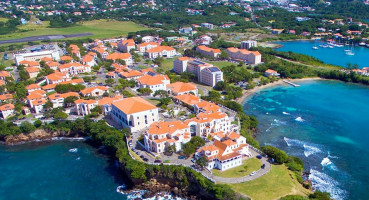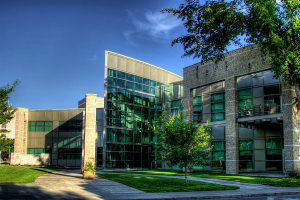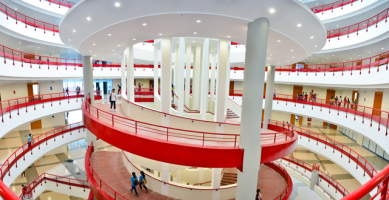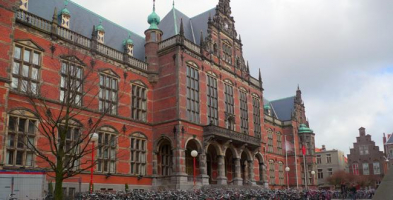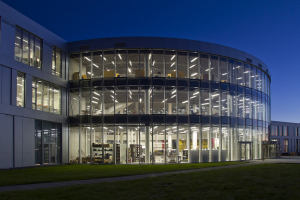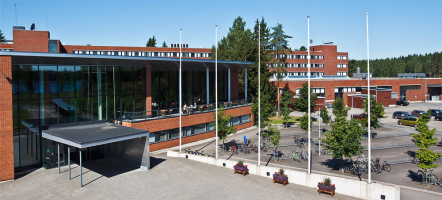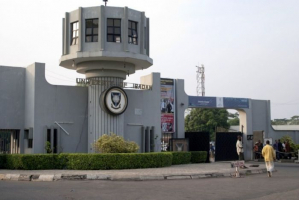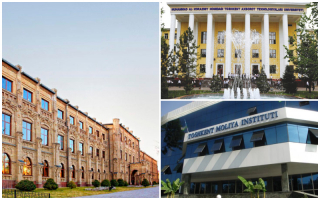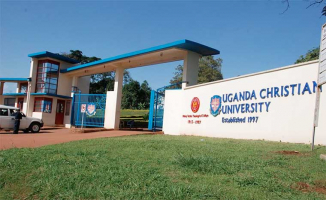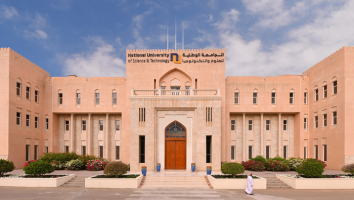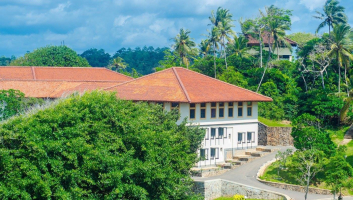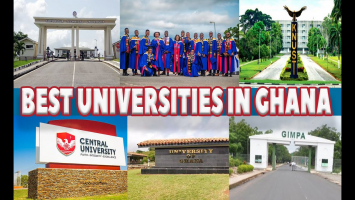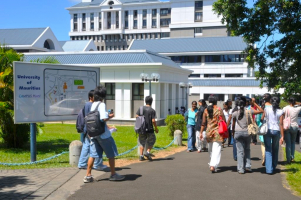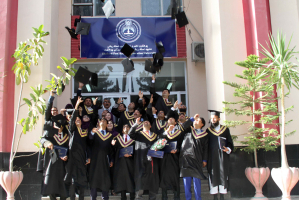Top 10 Best Universities in Pakistan
These Pakistani institutions have been numerically rated based on their total rankings in the Best Global Universities rankings. Schools were rated by members ... read more...of the academic community throughout the world and in Asia based on their research performance and ratings. These are the best universities in Pakistan.
-
1st place in the list of best universities in Pakistan is Quaid I Azam University. Quaid-i-Azam University, founded in 1965, is a non-profit public higher education institution located in Islamabad, CT, in the urban environment of the metropolis of Islamabad (population range of 1,000,000-5,000,000 residents). Quaid-i-Azam University (QAU) is a medium-sized (uniRank enrollment range: 7,000-7,999 students) coeducational Pakistani higher education institution that is officially accredited by the Higher Education Commission of Pakistan.
Quaid-i-Azam University (QAU) provides a variety of courses and programs that lead to legally recognized higher education degrees such as bachelor's degrees in a variety of fields. For the country's rising educational and technical demands, the university provides excellent computer education and training to people from all walks of life, as well as a wide choice of short-term certificate and diploma courses. In all, nearly 5,500 students are enrolled in the University's academic programs.
The Higher Education Commission (HEC) mandated the creation of the Office of Research, Innovation, and Commercialization (ORIC) . Students have access to a library, sports facilities, and administrative services, among other academic and non-academic facilities and services. The primary library, Dr. Raziuddin Siddiqi Memorial Library, is located in the heart of the university's academic campus. In 1985, the Central Library moved from its departmental location to its own four-story structure. The DRSM library has a total covered space of about 102,500 square feet.
#1 in Best Universities in Pakistan
#461 in Best Global UniversitiesGlobal score:
Location:
Website: -
Aga Khan University, founded in 1983, is one of Pakistan's premier institutions. Aga Khan University is a one-of-a-kind hybrid: a world-class academic institution that also serves as a catalyst for social change. The University equips men and women to lead change in their society and to flourish in the global economy. It is a prominent source of medical, nursing, and teacher education, research, and public service in the developing world.
The programs at AKU assist students in becoming thoughtful and resilient leaders. They emphasize interactive learning, diversity, and small class sizes to stimulate collaboration and innovation both within and beyond the classroom, and they are anchored in academic rigor.
Their study covers a wide range of topics, including health sciences, education, and culture and society. The ambition to lead change for future generations is at the heart of their purpose. Explore this site to see how AKU academics, scientists, educators, and students are working to improve people's lives, communities, and society.
AKU also provides a library, accommodation, sports facilities, financial assistance and/or scholarships, study abroad and exchange programs, as well as administrative services to students.
This Student Health Services Plan is only for full-time students participating in Aga Khan University (AKU) programs in Pakistan. The Student Health Services Plan at AKU offers students with medical coverage for day-to-day issues as well as emergency medical assistance during their time at the university. A team of health-care professionals has been assembled for this aim.
You may study at campuses in Pakistan, East Africa, and the United Kingdom as part of a multinational institution that spans multiple nations and three continents.#2 in Best Universities in Pakistan
#473 in Best Global UniversitiesGlobal score: 53.2
Location: National Stadium Rd, Aga Khan University Hospital, Karachi, Karachi City, Sindh, Pakistan
Website: www.aku.edu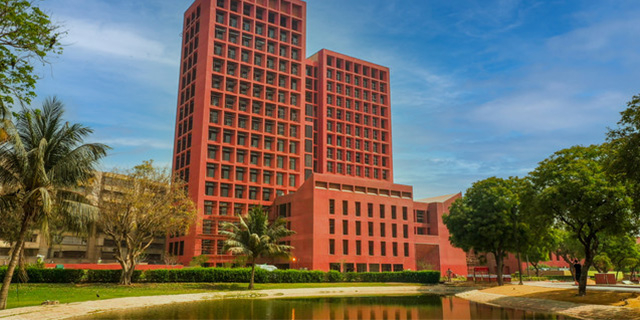
Photo: www.aku.edu Video: Aga Khan University -
Ranked 3rd on the list of best universities in Pakistan is COMSATS University Islamabad (CUI). The Commission on Science and Technology for South-South Development (COMSATS) is a non-governmental organization based in South Africa. Its goal is to employ science and technology to bridge the ever-widening gap between the developed and developing worlds.
On the 4th and 5th of October 1994, COMSATS conducted its founding conference in Islamabad. Representatives from 36 nations were in attendance. Twenty-two ministers, members of Islamabad's diplomatic community, and officials from international organizations such as UNESCO, UNIDO, UNEP, and the World Bank were among the attendees.
Share knowledge, understanding, and creativity among a diverse community of learners and teachers by providing a broad range of educational programs that prepare graduate, professional, and undergraduate students, as well as non-degree seeking students interested in continuing education and lifelong learning, for active roles in competitive and culturally diverse environments.
CUI strives to be one of the country's premier research institutions as well as a top higher education provider. It plans to become a university known as "COMSATS University," for which formal documentation is being prepared with the Pakistani government. The CUI's goal is to become one of the world's top 100 universities in the developing countries. By 2020, the CUI hopes to be among the top 500 colleges in the world.
Extend, apply, and exchange knowledge between the institute and society by applying scholarly expertise to intellectual, social, and technological problems, assisting organizations and individuals in responding to changing environments, and making the institute's knowledge and resources available to the public.
The Institute strives to enhance the state's services via the education of a contemporary workforce, research and development, technology commercialization, and partnerships with business, government, and community organizations by integrating the resources of its numerous campuses.Islamabad's COMSATS University The Junaid Zaidi Library is critical to COMSATS University Islamabad's educational goal. The Junaid Zaidi Library's overall goal is to choose, organize, and manage print and electronic materials that meet the COMSATS University Islamabad academic community's curriculum and information needs.
The COMSATS University Islamabad (CUI) in Islamabad plans to acquire internet/bandwidth on a "Single-Stage-Two-Envelope" basis for its campuses in several cities throughout Pakistan. Proposals are sought from reputable firms with a PTA license for internet/bandwidth provision and proven expertise in a related domain, namely the supply, installation, and maintenance of internet/bandwidth services.
The value of athletics in a student's life is immeasurable. It is extremely important in shaping students' lives and creating human personalities. Sports not only teach children how to preserve physical stamina, but they also teach them about compliance, discipline, winning resolve, and willpower, among other things. As a result, sports, in addition to academic accomplishments, are critical for students' mental, moral, and physical growth. Both male and female students have access to sports facilities on all CUI campuses.
#3 in Best Universities in Pakistan
#495 in Best Global UniversitiesGlobal score: 52.2
Location: Park Rd, Islamabad, Islamabad Capital Territory 45550, Pakistan
Website: www.comsats.edu.pk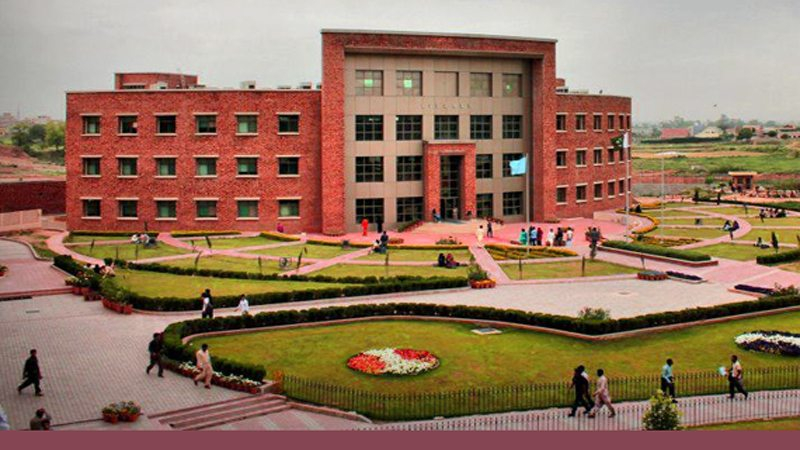
Photo: Jaamiah Video: Comsats Sahiwal -
National University of Sciences and Technology - Pakistan is another best university to mention in Pakistan. NUST has grown in importance, both nationally and globally, from its humble beginnings with military engineering institutions, serving the requirements of a rapidly changing globe. The main campus of the university continues to develop, both academically and in terms of physical surroundings, while the dedication to scientific leadership grows uninterrupted.
The National University of Sciences and Technology (NUST) was founded in March 1991 with the goal of promoting higher scientific education in the country, particularly in the fields of science and technology, by providing a stable and disciplined academic environment as well as need-based research that is relevant to industry needs. In 1993, the University received its charter.
NUST is a cutting-edge institution that is pushing the boundaries of teaching and research. The programs are notable for their emphasis on high-quality research. Despite the importance of undergraduate courses, postgraduate degrees and research output are becoming increasingly important. All scholastic activities include creativity and innovation as essential qualities. The academic climate on campus is favorable to educational endeavors.
All across the globe, research is at the heart of university education. Universities provide a substantial contribution to the generation of new knowledge and the exploration of new creative and innovative frontiers. In order for NUST to become a real centre of excellence, it is critical that, in addition to maintaining strong teaching standards, research is vigorously pursued and appropriately recognized. NUST's research output is in accordance with national demands and contributes to the country's socioeconomic progress.
The Career Development Centre (CDC) offers programs and services to assist students and graduates in exploring and making effective career choices, building professional networks with employers, and assisting companies in achieving their hiring needs. The office provides students with a variety of opportunities for personal and professional development and assists them in reaching their objectives.
The Student Centre is managed by the Student Affairs Directorate. NUST students can take use of a variety of services provided by the Centre, which are listed below:
- Serves as the front desk for all student-related matters and inquiries, such as degrees, transcripts, refunds, and scholarships.
- Deals with student discipline issues that are reported to SA Dte by NUST institutions. The Discipline Committee is led by the Director of Student Affairs.
- Coordinates and assists all University Clubs and Societies' operations. Students may improve their mental powers and prepare for the formidable problems of the future by doing co-curricular activities through these fora.
NUST Campus, Islamabad, primarily provides hostel facilities to outstation students per to hostel allotment criteria. The hostels include all of the amenities essential for a comfortable stay. Students may make the most of their time at the dormitory by following the hostel routine. The management is available 24 hours a day, 7 days a week. The application seniority list is rigorously followed while allocating hostel accommodations in the relevant category.
The NUST Central Library is now in the process of fast construction. The library is expected to feature around 200,000 books, as well as journals, off- and online databases, and other non-book items. Students, educators, and researchers will use the library to meet their educational and research requirements.
Medical Services - Implements health-related policies, offers outpatient medical care for students and employees, organizes inpatient medical coverage at linked hospitals, and supports activities that benefit the NUST community's overall health.
NUST is a multi-campus university with locations throughout Pakistan. It has campuses in Islamabad, Rawalpindi, Risalpur, and Karachi, as well as a central campus in Islamabad. The CENTRAL CAMPUS was constructed in Sector H-12, Islamabad, to meet the rapidly increasing need for a highly superior scientific and technology campus. Aside from the Rectorate, this site now houses additional high-tech postgraduate schools, centers, and institutions. Undergraduate and postgraduate programs have been running since Fall 2008, with a number of new ones starting in Fall 2013.
Although academics are a university's major duty, it acknowledges the relevance and value of physical skill development and encouraging recreational needs of students and staff in promoting good health, well-being, and good sportsmanship. It also emphasizes the importance of publicizing student successes in the field of sports. It also gives young people the chance to become in shape and maintain a healthy lifestyle.
- Basketball Courts (Out door)
- Badminton Courts (Out door)
- Cricket
- Fitness Gym
- Football Fields
- Futsal Ground
- Multipurpose Gymnasium
- Squash Court
- Table Tennis
- Volleyball Courts (Out door)
#4 in Best Universities in Pakistan
#922 in Best Global UniversitiesGlobal score: 41.2
Location: Sector H-12, Islamabad, Pakistan
Website: nust.edu.pk
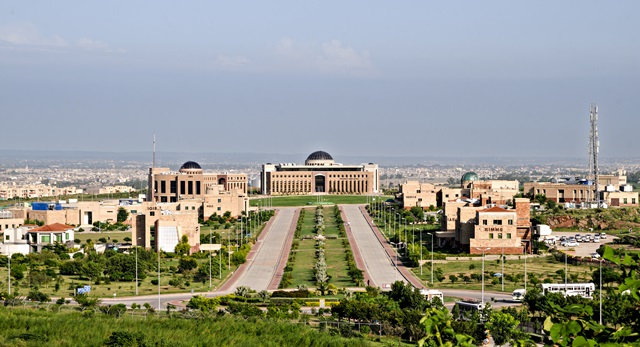
Photo: NUST Video: NUST -
The University of Peshawar is the next top university in Pakistan on our ranking. The University of Peshawar, as the mother educational institution of Khyber Pakhtunkhwa, is the result of the father of the country's aspiration and was established as the country's first university after independence. It is working fervently with all of its energy and spirit, sincerely serving the noble cause of education as a whole.
The University of Peshawar, which was established in 1950, is the realization of a long-held desire. Sir Sahibzada Abdul Qayyum Khan, who bravely conceived the concept and built Islamia College (The Dar-ul-ulum Islamia) in 1913 at the first outpost of civilization, virtually at the mouth of the famous Khyber Pass, may be considered to have sowed the first seeds of the University.
The Higher Education Commission (HEC) aspires to build and sustain a vibrant, internationally competitive research industry in Pakistan that contributes significantly to economic growth, national well-being, and knowledge development and dissemination. One of the HEC's main strategic aims is to promote research.
The quality and research output originating from Pakistan's universities and institutes have shown remarkable improvements as a result of the HEC's program and initiatives for strengthening research and the process of knowledge creation, and Pakistan has been recognized as a rising star in a number of research disciplines in terms of percentage increase in internationally cited research publications. However, this is only the beginning; they must not only continue and develop this trend, but also consider concerns of relevance and the research's economic, social, and intellectual consequences.
A library, accommodation, sports facilities, financial assistance and/or scholarships, study abroad and exchange programs, as well as administrative services, are all available to students at UOP. Every sort of customer may find a somewhere to stay, from the extremely cheap to the very affluent, and there are eating establishments strewn across town serving a range of cuisines.
A vast number of medium and small medical and associated institutions, both in the public and private sectors, provide medical coverage in addition to the three major hospitals.#5 in Best Universities in Pakistan
#933 in Best Global UniversitiesGlobal score: 40.7
Location: Old Jamrud Road, Qadir Abad, Peshawar, Khyber Pakhtunkhwa, Pakistan
Website: uop.edu.pk
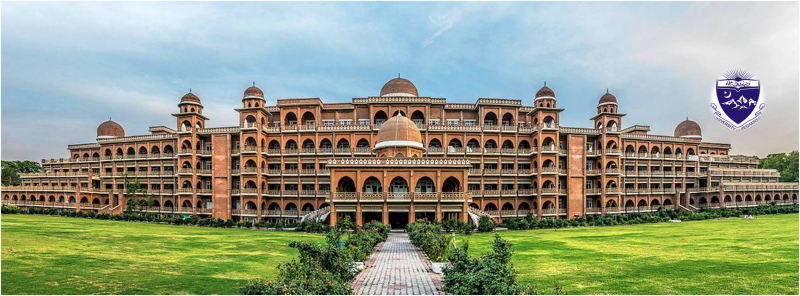
Photo: www.linkedin.com/school/university-of-peshawar-alumni Video: Abuzar Khan -
The University of Agriculture (UAF) in Faisalabad, Pakistan, is a public research university. UAF is South Asia's oldest and most illustrious agricultural institute. In 2019, the Higher Education Commission (Pakistan) (HEC) ranked it 4th in Pakistan and first in the subject of Agriculture and Veterinary Sciences. The University of Agriculture, Faisalabad (Urdu: جامعہ زرعيه فيصل آباد ), (formally: Punjab Agricultural College and Research Institute), is a university in the Pakistani city of Faisalabad. It was founded in 1906 as the undivided Punjab's first major school of advanced agricultural instruction.
The majority of the Division of Education & Extension's responsibilities have been transferred to the Faculty of Social Sciences. Tanvir Ali (ex-director of Graduate Studies and Division of Education and Extension) is now the director of the Faculty of Social Sciences' Institute of Agricultural Extension and Rural Development. Agricultural Extension, Agricultural Education, Agricultural Information (Mass Communication), Rural Sociology, Population Science, Gender Studies, and Rural Development are among the disciplines covered by the institute.
Faisalabad's University of Agriculture is a prominent research hub. For research and development, it receives billions of dollars. It made a significant contribution to the community by introducing modern agricultural practices. For research reasons, the institution maintains two modern scientific labs where university scientists conduct experiments. The University of Agriculture Faisalabad has a partnership with the University of California, Davis. In research and exchange programs, the two universities work together. Many scientists have graduated from UAF and are now working across the world.
Ceiling fans, electric water pumps, electric water coolers, sui gas geysers for hot water, sui gas heaters in common areas, and a hostel mosque are all standard features. The library is a fantastic resource for meeting the University's purpose of promoting education and research in the field of agriculture and associated fields. In 1973, the new structure was finished. It is practical, straightforward, and contemporary. It has an appealing appearance that combines modern and oriental architecture. Students have access to modern technology like as PCs and the internet in all of the residential halls, which are housed in a gorgeous computer laboratory with 10-15 PCs in each. The honourable Chancellor and Vice Chancellor officially opened these labs. There is only one computer lab.
In Burewala District Vehari, a sub-campus of the University of Agriculture Faisalabad was constructed to extend agriculture research across the country, particularly in Punjab's southern region. On June 5, 2005, a sub-campus of the University of Agriculture, Faisalabad opened in Toba Tek Singh to study the chicken sector. This campus offers a B.Sc. in Poultry Science (4-year degree program). Prof. Dr. Bashir Ahmed (Ex-Vice Chancellor) and Chaudhry Muhammad Ashfaq made special efforts to create this sub-campus (Ex- district Nazim). Dr. Nisar Ahmed of the Centre of Agricultural Biochemistry and Biotechnology is the institute's current principle (CABB).
Six hockey and five football teams competed in the tournament, which was organized by the Directorate of Sports Board, University of Agriculture, Faisalabad. LESCO defeated University of Agriculture Faisalabad Foot Ball Team 3-2 in the final football match, while Gulberg Team defeated Agrarian Hockey Club of UAF in the final hockey match. The hockey team from the University of Agriculture Faisalabad finished third in the competition. The prizes were handed by Hockey Olympians Manzoor ul Hassan Senior and Rao Salem Nazim, as well as Chief Guest Dr. Manzoor Ahmad Khan, to the victors and officials of the competing teams.
The Qiraat & Naat Club is a very active and vigorous group at the University of Alaska Fairbanks. Its members are frequently required to compete in Hifzo-Qiraat competitions at the university, provincial, or national level. Qiraat &Naat Club, on the other hand, appears to have seized the lead over other student clubs, since many of the activities conducted by this club are a big success.University of Agriculture, Faisalabad (UAF) is a large (uniRank enrollment range: 15,000-19,999 students) coeducational Pakistani higher education university nominally linked with the Islamic religion, as approved by the Higher Education Commission of Pakistan.
#6 in Best Universities in Pakistan
#954 in Best Global UniversitiesGlobal score: 40.1
Location: Jail Road، near Al-Khidmat Police Markaz، Police Lines, Faisalabad, Punjab 38000, Pakistan
Website: www.uaf.edu.pk
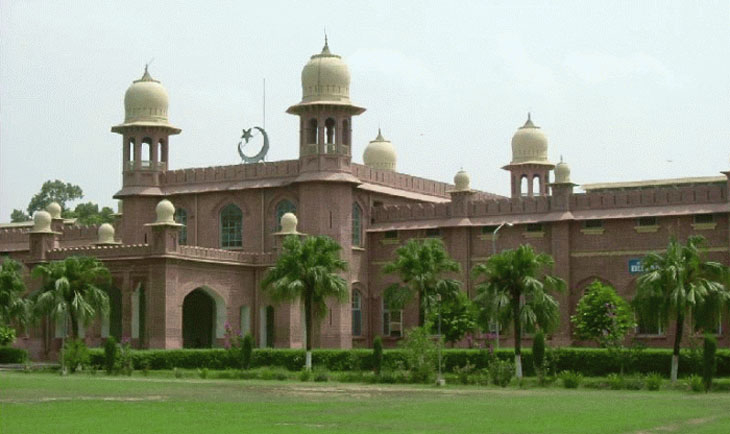
Photo: EntireTest.com Video: UAF Videos -
The University's educational philosophy is built around the rebuilding of human thought in all of its forms, based on the social, moral, and religious ideals. In a short period of time, Government College University, Faisalabad, has established itself as a premier center of learning and research. The University has been a catalyst for intellectual, social, and economic transformation because to its vibrant faculty and creative curricula. The arduous journey that began with a humble beginning culminated in October 2002 when it was given university status. Government College University in Faisalabad is, without a doubt, one of the greatest institutions in Pakistan.
They provide programs for undergraduates, graduates, and post-graduates. Academic departments operate under the direction of their respective faculties and are dedicated to providing high-quality education. They provide courses in the areas of Life Sciences, Physical Sciences, Computer Sciences, Law, Pharmaceutics, Business Studies, Social Sciences, Islamic & Oriental Learning, and Medical Sciences with the goal of cultivating a passion for knowledge and understanding.
Through its many academic programs, the University has a dynamic reach of diverse disciplines in research and development. The programs are created with the country's ambitions, educational problems, and industry-academic standards in mind. Through research culture, researchers at Government College University Faisalabad are attempting to address today's educational difficulties. They have not only improved and revolutionized the academic and research infrastructure in order to deliver quality education to its students, but they are also developing methods for those who wish to thrive in their disciplines.
In the context of emerging modern trends in the education sector, the Directorate of Students' Affairs (DSA) at GC University, Faisalabad focuses not only on the overall personality grooming of students, but also on discipline, health facilities, workshops, career services, counseling services, and financial assistance to students.
The Students' Financial Aid Office is primarily responsible for delivering all information, services, and financial resources that are accessible to and/or required by students who are pursuing an undergraduate or graduate degree at Government College University. Internal (university and/or endowment funds), governmental (PEEF, Professional Education Internal Merit and District Merit Scholarship), and private agencies or groups all give financial help.
Currently, the university Hall Council office consists of seven female hostels, including Federal Hall, Khadija Hall, and Ayesha Hall, which are located in the Allama Iqbal Campus and the new campus, and have a residential capacity of around 1600 students. The development of four more dormitories on the new campus was planned in response to the increased demand for housing for students arriving from far-flung places. These are in the process of being completed, and by the end of the year, Hall Council will have an extra capacity of 1600 pupils.
HEC has offered access to digital libraries to aid research at the university. Researchers and students will have access to the most up-to-date, authentic literature from high-quality journals, databases, and articles spanning a wide range of subjects, thanks to a new initiative.
The institution holds the distinction of being the first to implement this cutting-edge intelligent Wi-Fi infrastructure. The wireless system uses cutting-edge technology that is both reliable and durable. The IT Services Department provides internet access 24 hours a day, 7 days a week.
The Medical Health Centre equips students with first aid and outdoor medical amenities. Students are also given access to outdoor medications, and emergency patients are sent to Allied Hospital and DHQ Hospital by University Ambulance. The university's workforce is also accommodated at the Health Centre in both normal and emergency situations.The university has a fleet of buses that students may use to get to and from campus and throughout the city. All of the buses are premium and have a large capacity. The transportation service is available within a 30-kilometer radius. Students must apply for the scholarship at least 15 days prior to the start of the semester. Throughout students admitted to normal programs, transportation is provided on a semester-by-semester basis for the duration of the regular academic session. It is seldom granted after the conclusion of the academic year for purposes such as summer school, reappearing for exams, making up exams, or taking PEP programs.
Students, faculty, and non-teaching staff all have a variety of cultural functions and academic activities on campus. There will also be a number of talks on current national and international concerns. Musical Evenings, Sham-e-Ghazal, Student Theatrical Performances, Debate Competitions, Fun Fairs, and regular sports events in the University keep students engaged in creative activities, polishing their organizational abilities, and keeping them away from anti-social or extremist activities.
#7 in Best Universities in Pakistan
#1,149 in Best Global UniversitiesGlobal score: 35.9
Location: Kotwali Rd, Gurunanakpura, Faisalabad, Punjab 38000, Pakistan
Website: gcuf.edu.pk
Photo: Government College University Faisalabad Video: Government College University Faisalabad -
The University of the Punjab, which was founded in 1882 in Lahore, is Pakistan's largest and oldest institution of higher learning. It was the first to open in a Muslim-majority area on the subcontinent. The University of the Punjab was formally formed on October 14, 1882, when its Senate met for the first time at Simla. It was the fourth university created in the Indian Subcontinent by British colonial rulers. The British authorities created the first three universities in their early strongholds of Bombay, Madras, and Calcutta.
There are 5 campuses, 13 faculties, 10 constituent colleges, 73 departments, centers, and institutes, and 658 associated colleges within the university. It has 45,678 on-campus students and 1006 full-time and 300 part-time faculty members working in teaching and research. (1,219 Diploma Students, 27,907 Morning Students, 16,552 Evening Students).
The Punjab University Act of 1973 governs the University of the Punjab. The Chancellor, who is also the Governor of the Province, is the University's top authority. He preside over convocations and University Senate sessions. He also grants his assent for bestowing honorary degrees, etc., if he so wants. In most cases, the Chancellor follows the advise of the Pro-Chancellor, who is also the province Minister of Education.
Lahore is Pakistan's cultural capital and the country's capital. The city has a variety of cultural and academic events throughout the year, but notably in February, which is the season of spring and joy. Given the abundance of activities taking place in Lahore during the scheduled conference days, participants/students/delegates/professionals are encouraged to reserve their accommodations ahead of time.
The Punjab University Library, which was founded in 1882, is Pakistan's largest knowledge and information resource center. The library remained in its former facility until 1988, when it was relocated to its current two-story structure. The library has a total space of 102,000 square feet, with a 10,000 square foot basement. Punjab Institution is the first public university in the field of information technology to install a 47-kilometer fiber optic cable network with 74 optical fiber nodes covering all departments, dorms, and the administrative block through a local area network. The Punjab government has provided over 6500 state-of-the-art computers to universities and 30,536 laptops to pupils. It has proven possible to build a computer culture. Over 5,000 University personnel and their families, including widows, mothers, and children, are eligible for free medical care. Retired personnel and their families get access to medical services as well. The university has its own departments of radiology, biochemistry, and pathology, as well as a dental clinic with a full-time dentist.
The Allama Iqbal Campus, named after the renowned South Asian thinker and mystic poet, is located in the heart of the busy city of Lahore and has Islamic architectural style. The University also maintains a summer campus at Khanaspur, which is located near Ayubia at a height of roughly 7,000 feet in the Himalayan range. This campus serves as a leisure center for teachers and students in addition to offering research facilities. The University has also established Sub-Campuses in Gujranwala and Jhelum, each of which offers four disciplines: Business Administration, Commerce, Law, and Information Technology. In the near future, a few more disciplines will be introduced.
The Quaid-e-Azam Campus has a range of sports facilities, including cricket, hockey, football, and athletics grounds, a swimming pool for male students, squash courts, and indoor gaming facilities in the dormitories. Near the Allama Iqbal Campus, there are different sports grounds and a female swimming pool. The Boat Club provides leisure and competitive rowing facilities on the Quaid-e-Azam Campus canal and the River Ravi in the city's north.
#8 in Best Universities in Pakistan
#1,242 in Best Global UniversitiesGlobal score: 33.8
Location: Canal Rd, Quaid-i-Azam Campus, Lahore, Punjab, Pakistan
Website: www.pu.edu.pk
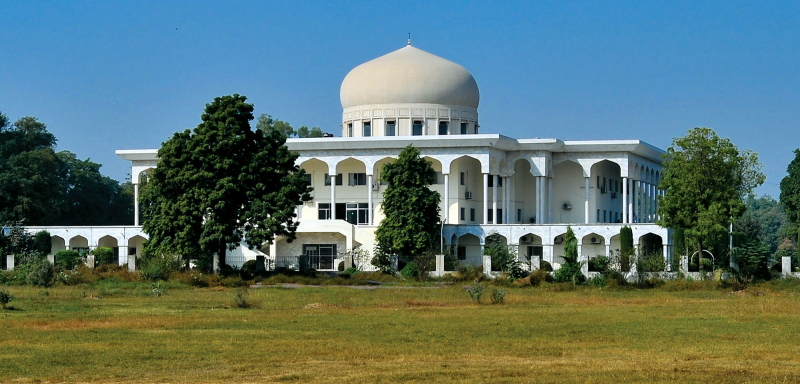
Photo: http://www.pu.edu.pk/ 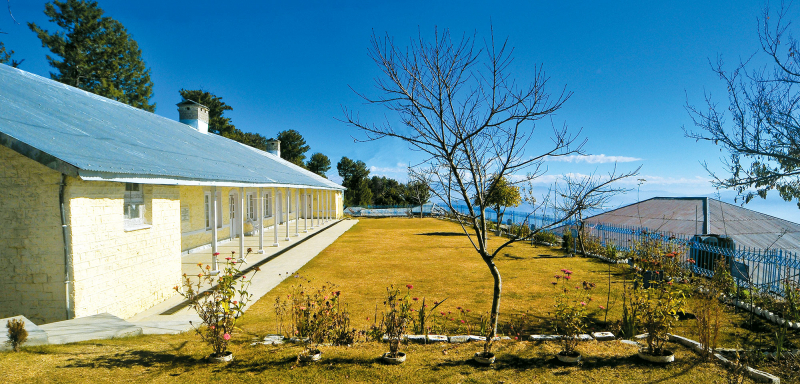
Photo: http://www.pu.edu.pk/ -
Bahauddin Zakariya University, founded in 1975, is a non-profit public higher-education institution in the Punjab city of Multan (population range of 1,000,000-5,000,000). A branch campus of this university is located in Layyah. Bahauddin Zakariya University (BZU) is a big (uniRank enrollment range: 20,000-24,999 students) coeducational Pakistani higher education institution that is officially accredited by the Higher Education Commission of Pakistan.
Bahauddin Zakariya University (BZU) provides a variety of courses and programs that lead to legally recognized higher education degrees such as bachelor's degrees in a variety of fields. For further information, see the uniRank degree levels and areas of study matrix below. BZU also provides a library, housing, and administrative services to students in addition to academic and non-academic facilities and services.
#9 in Best Universities in Pakistan
#1,368 in Best Global UniversitiesGlobal score: 31.1
Location: Bosan Rd, Bahauddin Zakariya University, Multan, Punjab 60000, Pakistan
Website: www.bzu.edu.pk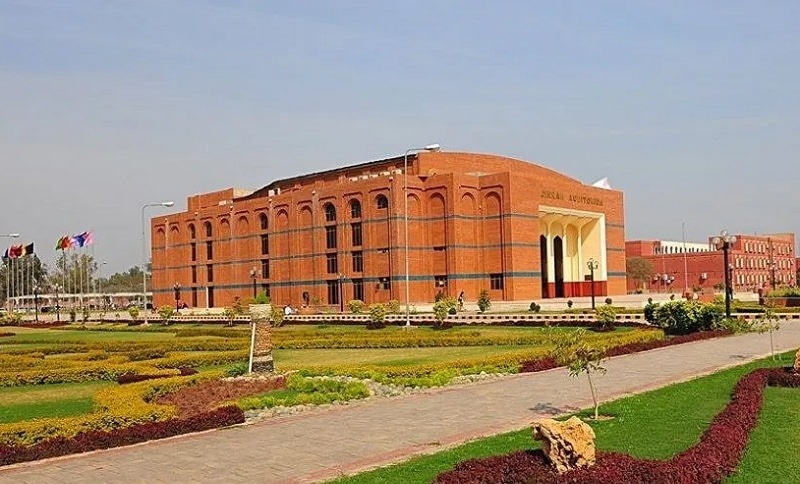
Photo: Dawn 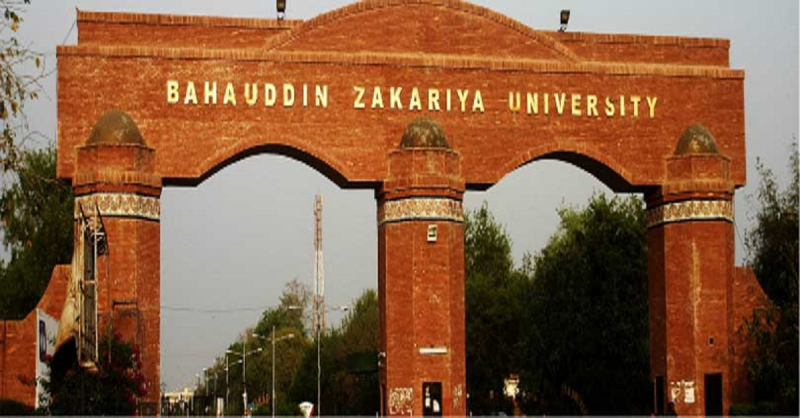
Photo: Pakpedia -
Pounding out our list of the best universities in Pakistan is the University of Engineering and Technology, Lahore (UETL). It was founded in 1962 and is a non-profit public higher education university located in the metropolitan environment of Lahore (population range of over 5,000,000 inhabitants), Punjab. Kalashah Kako, Faisalabad, Gujranwala, and Narrowal are all localities where this university has a branch campus.
University of Engineering and Technology, Lahore (UET Lahore) is a big (uniRank enrollment range: 10,000-14,999 students) coeducational Pakistani higher education institution nominally linked with the Islamic religion, as approved by the Higher Education Commission of Pakistan. The University of Engineering and Technology, Lahore (UET Lahore) provides courses and programs that lead to legally recognized higher education degrees such as bachelor's degrees in a variety of fields.
Applicants from all around the world are welcome to apply. Students at UET Lahore have access to a variety of academic and non-academic facilities and services, including a library, dormitories, sports facilities, financial assistance and/or scholarships, study abroad and exchange programs, and administrative service.
#10 in Best Universities in Pakistan
#1,458 in Best Global UniversitiesGlobal score: 28.9
Location: G. T. Road, Staff Houses Engineering University Lahore, Lahore, Punjab 39161, Pakistan
Website: www.uet.edu.pk

Photo: www.uet.edu.pk Video: Rehman Habeeb













